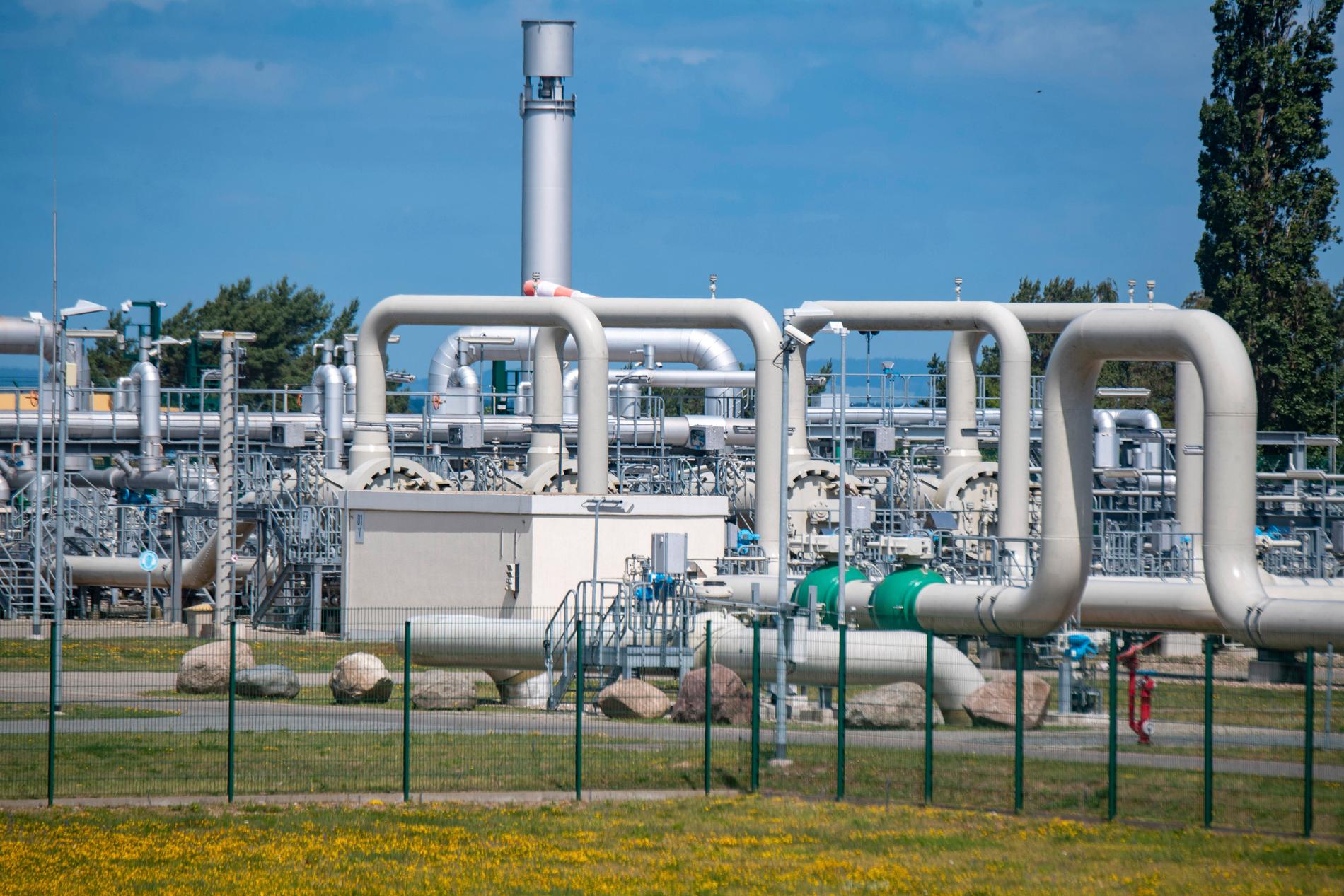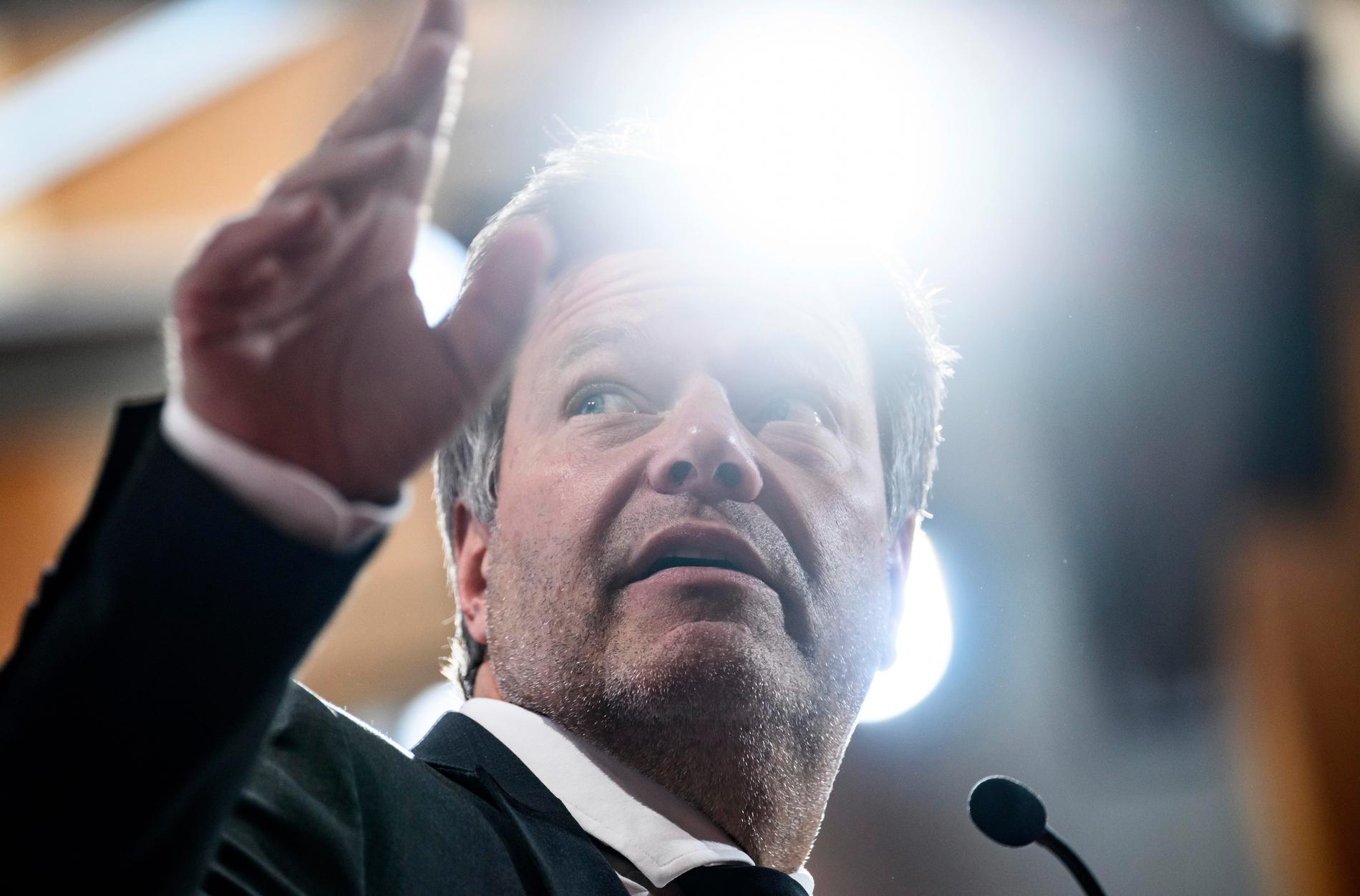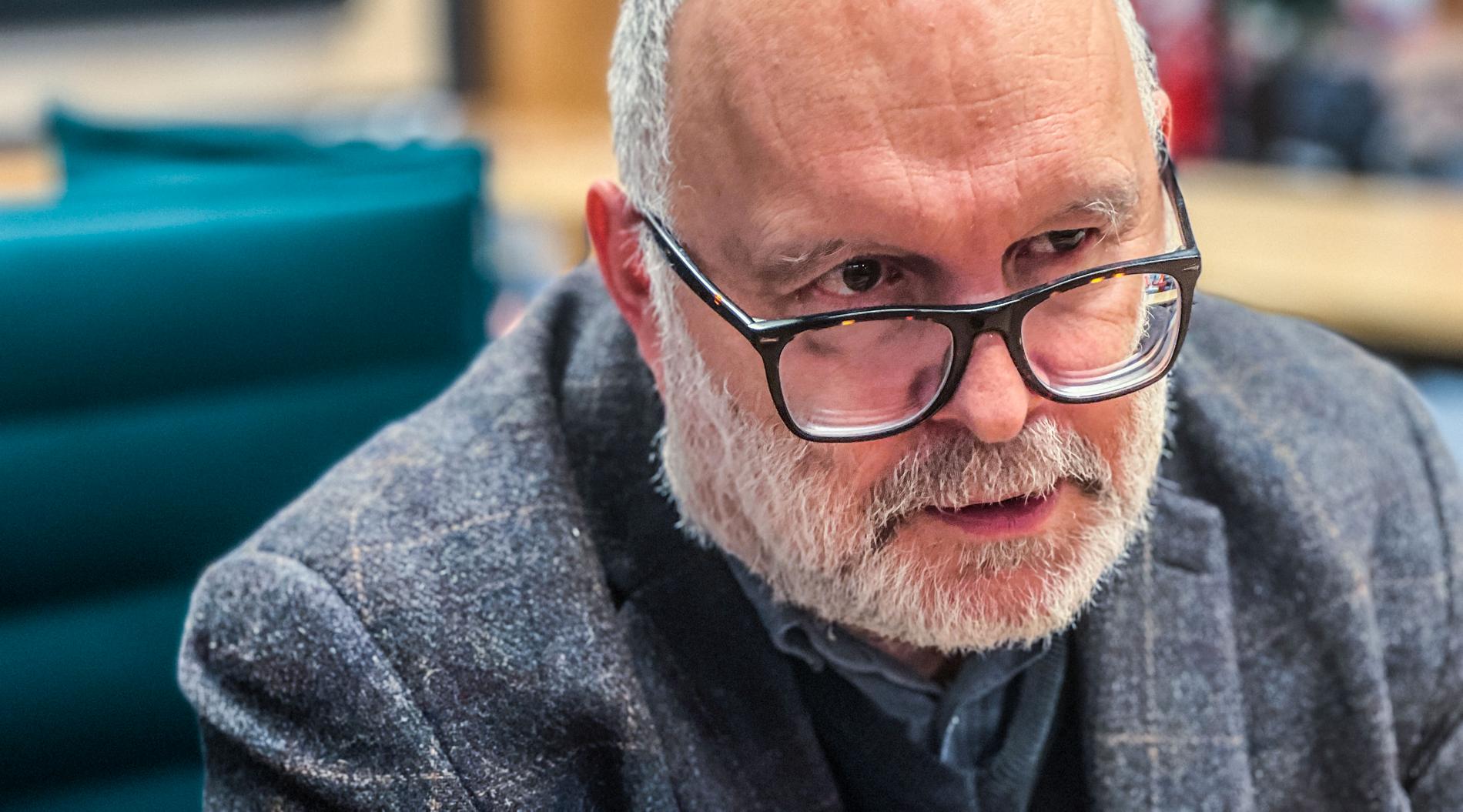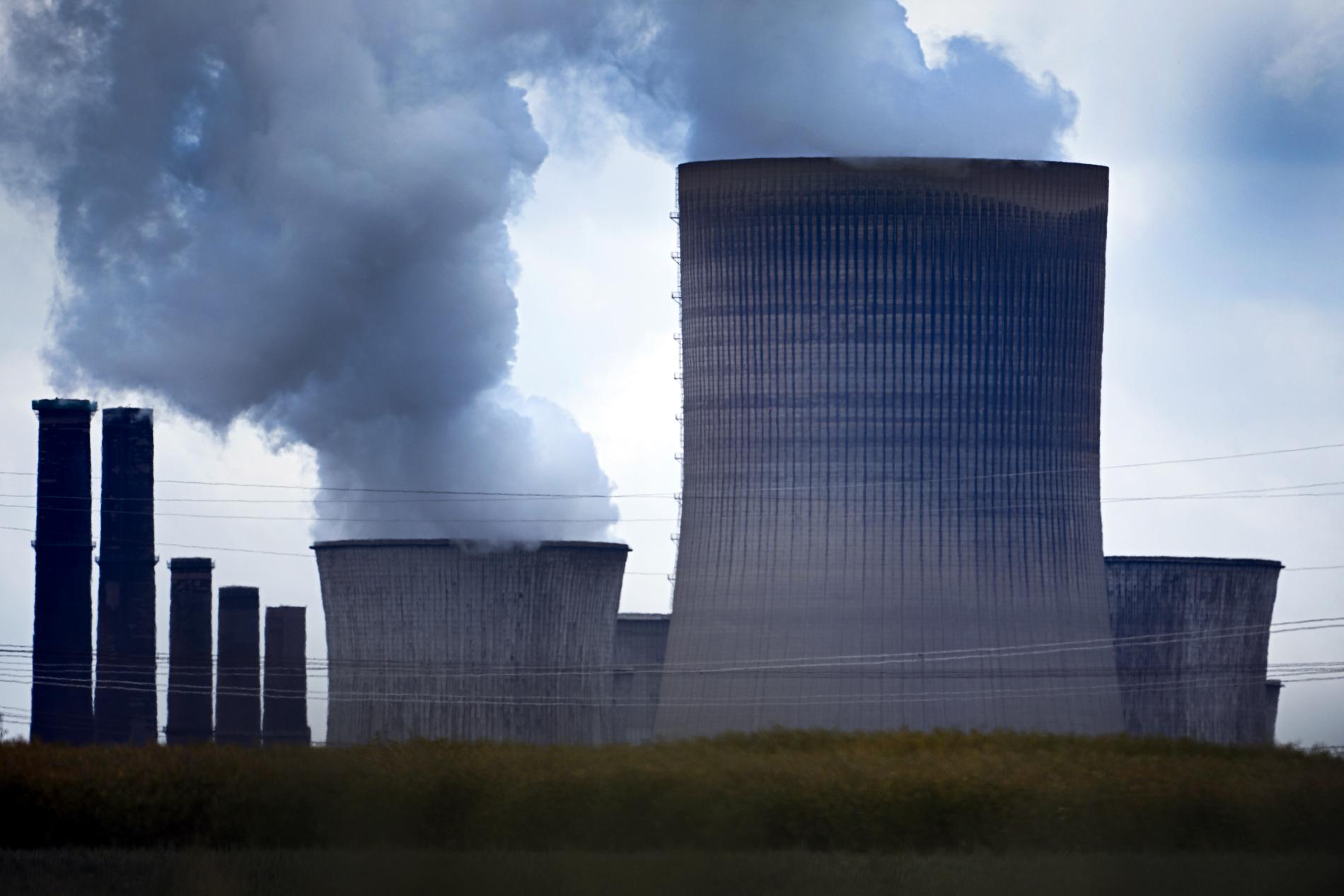Europe is holding its breath while Russia is now carrying out maintenance work on the continent’s most important gas pipeline. Germany is preparing for the worst and is reopening coal-fired power plants – contrary to its own climate policy.
Less than 30 minutes ago
–
The Nord Stream 1 pipeline is of great importance for the gas supply to several European countries, and is Germany’s most important source of natural gas. Monday morning it was closed for maintenance for ten days.
The renovation takes place annually in the summer when the demand for gas is lower than in the winter. According to the plan, Nord Stream 1 will reopen on 21 July.
This year, however, German authorities fear a prolonged halt as a result of Russia’s war in Ukraine.
A number of Western countries, including Germany, have imposed a number of sanctions on Russia to end the war. Russia has halted gas supplies to several countries in what is being seen as a response to sanctions.
Such a halt could have major consequences for Germany, which usually covers about 60 percent of its gas consumption with Russian gas. To secure the energy supply, the authorities have therefore reopened several coal-fired power plants – which have previously been closed for climate reasons.
Europe is preparing for a “strategic” gas shutdown
Every year, the 1220-kilometer-long Nord Stream 1 pipeline pumps approximately 55 billion cubic meters of gas along the bottom of the Baltic Sea to Germany. From here, the gas is distributed to a number of European countries.
State-owned Gazprom has already significantly reduced gas supply through Nord Stream 1, and only 40 per cent of the pipeline’s capacity has been in use recently. According to the Russian energy giant, there are delays in maintenance work behind it.
Fatih Birol, head of the International Energy Agency, however, has claimed that the reduced supplies may be strategic from the Russian side.
“I do not want to rule out that Russia finds various problems here and there, and continues to find excuses to reduce gas supplies to Europe,” Birol told the BBC in June.
 –
–Across Europe, people are now preparing for a day without Russian gas.
Russia has already shut off gas supplies to a number of European countries, such as Denmark, the Netherlands, Finland, Bulgaria and Poland. Italy and France have also had their deliveries reduced.
I mars the EU presented a plan to get rid of its dependence on Russian gas: two thirds of its supply to be cut before the year is over.
– It is clear that Putin continues to use energy as a weapon. This is the reason why the European Commission is working on a European contingency plan, said European Commission President Ursula von der Leyen earlier in July.
Using energy as a weapon means that energy supplies are used to achieve other gains beyond the economic ones. One goal may be to influence other countries’ political decisions.
Reopens coal-fired power plants in violation of its own policy
Germany’s Climate and Finance Minister Robert Habeck calls the situation a “nightmare scenario” and asks EU countries to be prepared in case supplies are not resumed. writes the BBC. At the same time, he admits that Germany has become “too dependent” on Russian gas.
– Everything is possible, anything can happen. We must prepare for the worst, he said on German radio on Sunday.
A key goal for the German government is to replenish gas reserves before winter arrives and German homes must be heated.
To secure supply in light of the Russian gas shutdown, Germany has therefore decided to reopen several of the country’s coal-fired power plants. Habeck – who is both climate and finance minister – has described this as “bitter but necessary”.
 –
–Habeck emphasizes that the increased use of coal should only be temporary, and that the plan is to produce more and more renewable energy in the long term. Germany has a stated goal of phasing out coal power completely by 2030.
– When there is an imminent danger of the Russian gas disappearing, Germany must do what they can to secure the energy supply. An extraordinary situation requires extraordinary solutions, says Jakob M. Godzimirski to VG.
He is researching Russia and the importance of energy resources in Russian strategy at the Norwegian Institute of Foreign Policy (NUPI).
– Building a sustainable energy system is a long-term goal. Now you may have to take a few steps to the side, or even back, to secure the energy supply for the coming winter, Godzimirski says.
– It may be to scare a little
The NUPI researcher believes that the closure of Nord Stream 1 can be interpreted differently:
– Some will interpret this as a purely technical matter that is about maintenance. Others interpret it as a kind of political signal that Russia is willing to use energy weapons, Godzimirski says.
Godzimirski believes that the maintenance of Nord Stream 1 could be an excuse to stop the supply of gas.
– It has been a recurring theme in the Russian context. It is a known phenomenon that Russia uses that kind of excuse to use energy weapons.
 –
–At the same time, he does not want to rule out that the closure of Nord Stream 1 is precisely about maintenance.
– With such a complicated infrastructure, it is also obvious that the line must be upgraded and maintained. It may be that only technical measures are behind the decision, but one does not exclude the other. It may be to scare a little, says Godzimirski.
He also points out that Russia itself could have major problems if exports disappear:
– It is also about the fact that energy and gas are a kind of backbone of the Russian economy. Russian gas is strongly associated with the European market, and there is no other way to transport the gas other than this infrastructure.
– What can the closure of the pipeline mean for Norway?
– We use almost only Norwegian gas in Norway. If the cable is closed, we can expect that the demand for Norwegian gas abroad may be greater than what we are able to deliver, says Godzimirski.
He believes a Russian gas shutdown will have major political consequences for Europe.
– High gas and electricity prices affect European industry and make it less competitive. Many jobs can therefore disappear. With the coming winter, many also risk freezing if there is a shortage of gas in Europe. All this can have political consequences by creating more unrest and division, he says.
–

